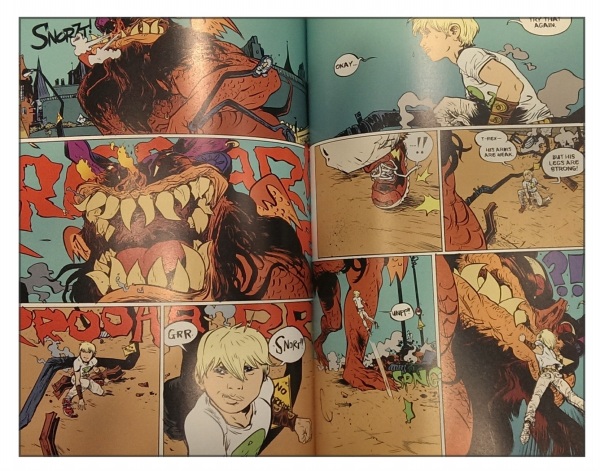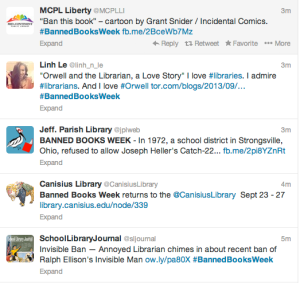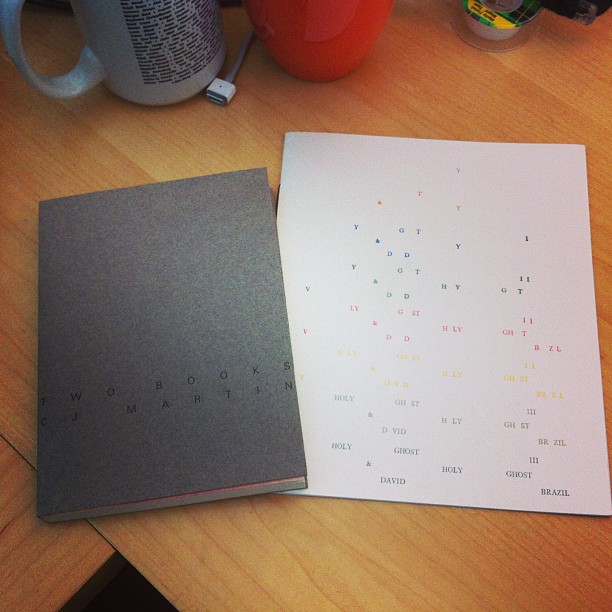Thor: God of Thunder /
The god butcher
Collects issues #1-5
Jason Aaron & Esad Ribic
$24.99 (Hardback)
124 pages
With the popularity of Marvel Comic's movie machine, Thor is certainly gaining some readers. For those interested in what propels this character, Jason Aaron's run of Thor: God of Thunder is a great place to start. The narrative twines three versions of Thor from different times in his life. We get to know the young Thor who cannot yet lift Mjolnir, the Avenger's Thor, and finally a older almost broken Thor (now one-eyed and ruling what's left of Asgard).
 These stories are held together with a villain named, rather bluntly, Gorr, but who nonetheless is an intriguing character: during one scene in which he's bound our young Asgardian hero and is busy inflicting pain, Gorr is interrupted by Thor's followers and pleads with the berserkers to not fight as he is trying to free them, insisting, "Do not throw your lives away on something as useless as a god! He isn't worth your devotion!" Gorr thinks mortals' lives would be better without any gods and all and is busy ridding the universe of what he considers a dangerous pest. As the story progresses, Aaron deftly builds our sympathy while balancing the actual atrocity of this character's actions--intent and impact on a cosmic scale.
These stories are held together with a villain named, rather bluntly, Gorr, but who nonetheless is an intriguing character: during one scene in which he's bound our young Asgardian hero and is busy inflicting pain, Gorr is interrupted by Thor's followers and pleads with the berserkers to not fight as he is trying to free them, insisting, "Do not throw your lives away on something as useless as a god! He isn't worth your devotion!" Gorr thinks mortals' lives would be better without any gods and all and is busy ridding the universe of what he considers a dangerous pest. As the story progresses, Aaron deftly builds our sympathy while balancing the actual atrocity of this character's actions--intent and impact on a cosmic scale.Supporting Aaron's writing is Esad Ribic's art (who some may recognize from Wolverine, Loki, and Uncanny X-Force). His work here is impressive--adeptly shifting perspectives and including enough detail to encourage looking again without drowning the composition. Colorists Dean White and Ive Svorcina need a shout here as well as coloring is gorgeous.
While the first trade-paperback is a pretty fast read, the series is in-depth and worth checking-out, and is a good addition to your library's (or your own) collection.












